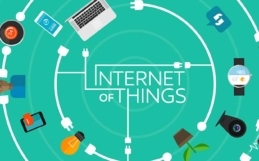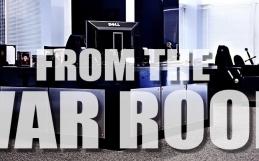Stunning … but not surprising… news this weekend. RIM has finally decided to shake up it’s leadership team. According to the CBC this morning, “RIM’s co-CEOs stepped down as heads of the Waterloo, Ont.-based technology company, effective immediately. The company’s board of directors unanimously named former chief operating officer Thorsten Heins as president and CEO on the advice of the two co-founders.” (source here). This change in leadership has sparked plenty of conversation and speculation … but will it be enough for RIM to stay competitive in the mobile device marketplace?
Apple devices weren’t meant for business. They are consumer devices that look great, perform well, and have now found a home in the lives of business people. Apple develops (for the most part) software and devices for people. For consumers. Their focus and their virtue in the marketplace is their longtime rabid emphasis on the user experience with their products. They aren’t really concerned with the same things that worry a corporate IT person; like security. Users don’t care about data security or enterprise support and control. They care about what it’s like to use the device and the associated software. Somebody else will worry about the backend stuff … or worse, we begin to succumb to the Facebook mentality that privacy is going the way of the Dodo. The point is that those in the Apple world (generally speaking) can assume that the backend security and device management worries are simply “taken care of”. Unfortunately for our industry, the buck stops with us. Literally. We are the ones responsible for all these things and ensuring the security risks and support costs don’t damage our businesses. I still struggle with this point of comparison with BlackBerry. Security and enterprise management worries are big.
Pretty soon, BlackBerry will release new devices based on QNX (BBX) and they will match the specs of the iPhone 4s (yes – just match: Bluetooth 4.0, 8MP camera, 1080p recording, TV output). But then, the iPhone5 will come out and likely embarrass RIM’s products again. Even though I am now using an iPhone 4s, I’m still a BlackBerry person. I cannot criticize Apple for winning over the masses with their sexy devices, whether they are good for business or not. And this is where RIM really disappointed me. Perhaps their new leadership team will take a different strategy.
Apple has an elite advantage in branding and marketing. If BlackBerry is better at something, RIM needs to push themselves to prove that with their devices … and then market the hell out of them based on that niche (e.g. business use). They haven’t really done that successfully. RIM has tried to compete with Apple on the consumer front, and lost miserably. They haven’t made a bold statement either way (business or consumer), the organization has just plodded along assuming they’ll be fine. This apparent arrogance does not suffice for competitiveness, nor can it secure customer loyalty in the face of Apple’s tidal wave of popularity. This lesson has been taught in our industry many times before.
For those IT pros out there, do you remember how Microsoft beat Novell when it came to corporate computing? Did they do it with better products? No way. Novell had a faster and far more stable server operating system. At one point, Novell had 76% of the server market share. Yet today, can you name any organizations that are happily running Novell servers? No way. The same is true in the software world.
The gold standards for productivity software use to be: WordPerfect, Harvard Graphics, Lotus 123. Each of these was the unchallenged, best-of-breed product in their class. And yet, Microsoft absolutely destroyed them with Microsoft Office. Did Microsoft do that with the fastest and most technically solid products? No. Hell no! The history of our industry is riddled with stories of catastrophic failures/data corruption/viruses etc … that plague Microsoft products. And yet, we have all ended up using them. And even loving many of them. Why? Marketing. Branding. Consistency. And of course that stupid paper clip that offered troubleshooting help. Clippy. I hated that smug little jerk in the corner.
I would argue that we are witnessing the same kind of dethroning with RIM. The iPhone is poised to marginalize the BlackBerry in the same way that Microsoft made Novell irrelevant. RIM is handcuffed by what got them here. The most stable, fast, secure and supportable infrastructure with ‘…the most options for today’s user’. However, updates are becoming near impossible – trying to match the specs and capabilities of newer versions of their stuff, but remaining compatible with the old world – all with their various screen types and keyboards etc … Yikes. I do not envy RIM. In my opinion, they need to either gut and rebuild (both their platform AND the branding strategy) or they need to leverage their strengths and be truthful with their release dates – delivering on promises and SELL the fact that taking longer to release new product will ensure the most stable and secure mobile devices on the market. This weekend’s leadership change is a big step, but who knows how ready they are for either of these options.
From my heart, after a couple weeks using the iPhone 4s in production, I still believe that BlackBerry has better e-mail, messaging, supportability and security. But again, that Novell-style arrogance has run strong for too many years. They don’t seem to recognize the peril they face. Perhaps the market failure of the PlayBook might help them realize this lesson soon. The reality is that nobody is sounding the alarm just yet. RIM is still a very strong company:
RIM Highlights from 2011 Q3:
- Revenue of $5.2 billion, up 24% from last quarter
- BlackBerry smartphone shipments of 14.1 million, up 33% from Q2
- GAAP net income of $265 million or $0.51 per share diluted; adjusted net income of $667 million or $1.27 per share diluted
- Subscribers up 35% year-over-year to almost 75 million
- Cash flow from operations of approximately $895 million
- Total of cash, cash equivalents, short-term and long-term investments of $1.5 billion
Compared to the surging popularity of the iPhone, they are down, but they certainly not out of the game. They have the resources to turn things around. And we are watching them very closely.
What I know for sure is that BlackBerry is losing the faith of IT Weapons and the many devices (over 8500) we represent. I know when I went to the US in the Fall with Jay to Dell World in Austin, that was when RIM was down for 3 days. A catastrophe for all the organizations that rely on BlackBerry. But nobody at that conference really gave a damn (except me and Jay, with our non-functional BlackBerrys). Everyone there was on an iPhone. And that was a conference of over 2000 top IT people in the world. No one really cared that the RIM servers were down. That was a real eye opener for us. Business and life went on, largely uninterrupted, for everybody without a BlackBerry.
Now that Jim and Mike have stepped down, who knows what the future has in store?




